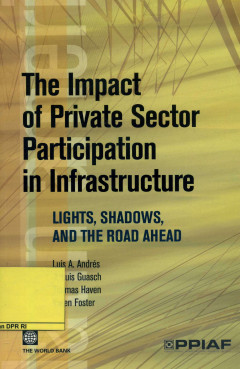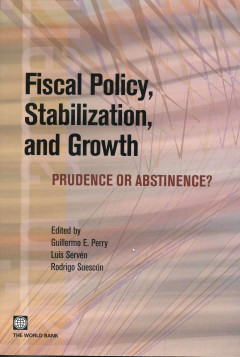Ditapis dengan

JKN dalam Kacamata Pekerja Sektor Informal
JKN (Jaminan Kesehatan Nasional) adalah program perlindungan dan pelayanan kesehatan yang ditujukan kepada seluruh penduduk Indonesia, termasuk masyarakat miskin, yang berguna sebagai penyangga ekonomi ketika sakit. Di sisi lain, sektor informal terbukti mampu menyerap tenaga kerja terbesar mencapai 58,2% (2018). Dengan karakteristik pekerja sektor informal adalah usaha skala kecil, berteknolog…
- Edisi
- -
- ISBN/ISSN
- 978-602-433-888-6
- Deskripsi Fisik
- xxv , 212 hlm ; 21 cm
- Judul Seri
- -
- No. Panggil
- 368.42 JKN

Managing Human Resources
- Edisi
- -
- ISBN/ISSN
- 0-13-173660-4
- Deskripsi Fisik
- xxix, 623 hal. ; ill. : 27 cm
- Judul Seri
- -
- No. Panggil
- -
- Edisi
- -
- ISBN/ISSN
- 0-13-173660-4
- Deskripsi Fisik
- xxix, 623 hal. ; ill. : 27 cm
- Judul Seri
- -
- No. Panggil
- -
Diverse spain
- Edisi
- -
- ISBN/ISSN
- 84-7782-021-X
- Deskripsi Fisik
- 217 hal. : il. ; 27 cm.
- Judul Seri
- -
- No. Panggil
- -
- Edisi
- -
- ISBN/ISSN
- 84-7782-021-X
- Deskripsi Fisik
- 217 hal. : il. ; 27 cm.
- Judul Seri
- -
- No. Panggil
- -

The Impact of Private Sector Participation in Infrastructure
Bibliografi dan indeks
- Edisi
- -
- ISBN/ISSN
- 978-0-8213-7409-2
- Deskripsi Fisik
- xxviii, 351 p. : ill. ; 25 cm. (1 eks).
- Judul Seri
- -
- No. Panggil
- -

Fiscal policy, stabilization, and growth
Fiscal policy in Latin America has been guided primarily by short-term liquidity targets whose observance was taken as the main exponent of fiscal prudence, with attention focused almost exclusively on the levels of public debt and the cash deficit. As a result, fiscal policy has often amplified cyclical volatility and dampened growth.
- Edisi
- -
- ISBN/ISSN
- 978-0-8213-7084-1
- Deskripsi Fisik
- xv, 329 hal. : il ; 23 cm
- Judul Seri
- -
- No. Panggil
- -
 Karya Umum
Karya Umum  Filsafat
Filsafat  Agama
Agama  Ilmu-ilmu Sosial
Ilmu-ilmu Sosial  Bahasa
Bahasa  Ilmu-ilmu Murni
Ilmu-ilmu Murni  Ilmu-ilmu Terapan
Ilmu-ilmu Terapan  Kesenian, Hiburan, dan Olahraga
Kesenian, Hiburan, dan Olahraga  Kesusastraan
Kesusastraan  Geografi dan Sejarah
Geografi dan Sejarah